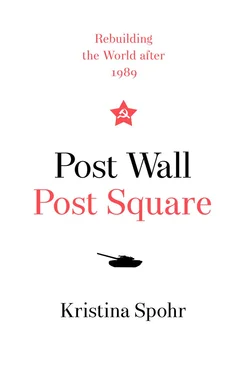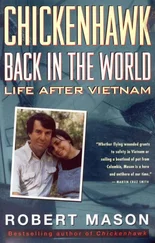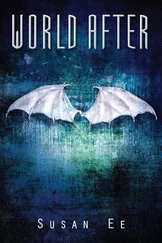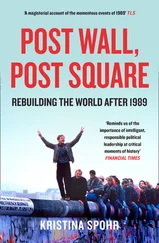To resolve the crisis, the West German leadership took the initiative to deal with matters at the highest level, both with East Berlin and Budapest. [132]Normally East German leavers or escapees – being a German–German matter rather than an issue of ‘foreign’ relations – came under the aegis of the Chancellery. But most refugees were in third countries, moreover in or around FRG embassies, so the Foreign Ministry had to be involved. It was run by the forceful Hans-Dietrich Genscher – a man with his own agenda. Born in 1927 in Halle – a town that became East German after 1945 – Genscher felt he had a personal interest, almost a mission, to sort out this issue, going far beyond the call of duty. What’s more, Kohl headed a coalition government, formed by his own Christian Democrats and the liberal Free Democrats (FDP), whose party leader was Genscher. This made the foreign minister also the political ‘kingmaker’ on whom the chancellor depended for his working majority in the Bundestag. So Kohl had to tolerate a certain amount of independence by Genscher in the handling of this deeply national and highly emotional problem, and their relationship was certainly not devoid of rivalry. The result was something like a dual-track policy as the FRG responded to the refugee crisis in the summer and autumn of 1989. The Foreign Ministry handled Budapest and Gyula Horn (as well as Warsaw and Prague), while the Chancellery dealt with East Berlin and Erich Honecker. [133]
But the German–German track was not much use that summer. The West German mission (or ‘permanent representation’) in East Berlin had also been obliged to close, in part because of the crush of would-be escapees. What’s more, Honecker himself was seriously ill with what proved to be cancer and was largely out of active politics for three months from July to late September, as party underlings began to jockey for power. [134]
So the onus fell on the Hungarian government, amid all the other political and economic problems on its plate, to try to square the diplomatic circle as a human drama unfolded in the muddy, squalid camps. It was obliged now to deal in totally novel ways with the FRG in order to address the crisis at the heart of Budapest. Yet, at the same time, the government had no desire to break entirely and openly with the GDR: Horn did not want to repudiate Hungary’s bilateral secret treaty of 1969 about how to deal with ‘criminal offenders’ who got caught planning or attempting ‘desertion from the Republic’. And he also kept resisting West German pressure to recognise the East Germans officially as ‘refugees’ under international law and to call in the UNHCR to deal with them. In short, his government was in a kind of no man’s land between one international order and another. At the end of his tether, Horn told one of Genscher’s staff: ‘Hungary is in a precarious situation.’ [135]
Whatever the protocols of Bonn’s informal dual track, it would take the intervention of Chancellor Kohl to force matters to a head – engaging directly with his counterpart in Budapest, Prime Minister Németh. On 25 August Németh and Horn travelled secretly to Bonn to meet with Kohl and Genscher at Schloss Gymnich, a restored castle and government guest house. In a two-and-a-half-hour meeting followed by lunch, Hungarians and West Germans sought to resolve the matter irrespective of what the East Germans wanted. [136]
Kohl and Genscher convinced their Hungarian visitors that the most sensible way forward was to cooperate wholeheartedly with the West on the issue of East German refugees. It was an emotional moment. Németh assured Kohl that ‘deportations’ back to the GDR were ‘out of the question’ and added ‘we will open the border’ by mid-September. ‘If no military or political force from the outside compels us to act differently, we will keep the border open for East German citizens’ as an exit route. Taking in these words, Kohl had difficulty in containing his emotions. Indeed he was moved to tears. [137]
Németh then went on to agree with Kohl that, such was the severity of Hungary’s economic crisis, he would need the help of the West to get on top of it. By contrast, the GDR could do nothing for Hungary; nor could Gorbachev because of his ‘difficult position’ at home, though Németh said it was important to do everything possible to ‘ensure the success of Gorbachev’s policies’ because that was the only way to keep peace in the bloc. In short, by doing as Bonn wanted with regard to the touchstone issue of the East Germans, Németh seems to have hoped to encourage both Bonn and also Washington to offer Hungary financial support and to develop more extensive trade relations. Kohl did not make any commitments then, but promised to speak to West German bankers (and to Bush). A substantive DM 1 billion financial support package duly followed for Hungary’s democratisation and market reforms – comprising a 500 million credit guarantee by Bavaria and Baden-Württemberg and 500 million from the Federal German government. By the end of the visit Németh had made a fateful decision: Hungary would fully open its border to the West for GDR citizens in return for Kohl’s DM to help his country emerge from the bloc into the Western world. [138]
It was a sign of the times that this deal was struck before Budapest officially informed the Kremlin of its border decision. An intense few days of ‘travel diplomacy’ ensued. But once Horn spoke to Shevardnadze, it was clear that the Soviets were willing to grant the Hungarians a free hand in their actions. [139]And Kohl’s telephone conversation with Gorbachev himself also produced a green light, with the Soviet leader’s laconic, even banal, observation ‘the Hungarians are good people’. [140]
The Hungarians were, however, much less successful in sorting out arrangements with the GDR. In East Berlin on 31 August Horn told Foreign Minister Oskar Fischer he was willing to send the East Germans home if the GDR pledged it would grant the escapees immunity from prosecution and guaranteed their right to emigrate legally. Yet Fischer offered only immunity and kept insisting that upon their return these East Germans would have to ‘pursue their individual exit visas’ with legal assistance but with no promise that permanent exit permits would be automatically granted. He also demanded that Hungary close its borders for East Germans, which Horn rejected. East Berlin also tried to convene a meeting of Warsaw Pact foreign ministers to put pressure on Budapest – but Soviet, Polish and Hungarian officials all objected, arguing that the Pact was not an appropriate forum to deal with the matter. So by 5 September the SED Politburo was reduced to old-fashioned communist bluster, accusing Hungary of ‘doing the bidding of Bonn’ and ‘betraying socialism’. [141]
On 10 September Horn made his public announcement that the Hungarian government would allow East Germans to cross freely into Austria, from where they could continue to the Federal Republic. Hungary, Horn declared, did not want to become ‘a country of refugee camps’ and was determined to ‘resolve the situation on humanitarian gounds’. His deputy Ferenc Somogyi told the international press – carefully choosing his words, delivered in English. ‘We want to open up and diversify relations with Western Europe and the West in general.’ In this vein, Somogyi said, Hungary had accepted a general European attitude and thereby moved ‘closer to the West’, placing ‘absolute primacy on universal humanitarian values’. What’s more, he added approvingly, ‘similar considerations’ now also characterised Soviet policy. [142]
The drama then unfolded on TV screens across the world. From the early hours of 11 September a mass exodus ensued. The East Germans, many of them young people in their twenties and thirties (mainly craftsmen such as bricklayers and masons, plumbers and electricians), poured across the Austrian border in cars, buses and trains. Austrian Interior Ministry officials said that by late that evening 8,100 East Germans had entered Austria en route to West Germany and that the flow was increasing steadily. And with this stream of people, Craig Whitney of the New York Times remarked that the ‘ German question’, that ‘dream, or fear, of German reunification, also came alive with them’. He quoted a senior US diplomat: ‘It’s still not going to happen any time soon, but there’s beginning to be serious thought about it. It’s not just a pious platitude any more.’ [143]
Читать дальше












